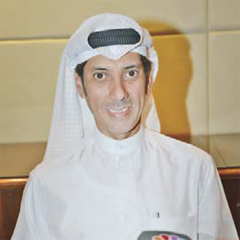JABALIA: Surrounded by a sea of rubble, the Palestinian Al-Balawi family in northern Gaza hang blankets above the ruins of their home to create a makeshift tent that provides shade from the searing summer heat. The family are struggling to feed themselves in the Jabalia refugee camp after the nearly nine months of war that have followed Hamas’s October 7 attack.
Gazans are suffering from severe shortages of supplies including food and water alongside the Zionist entity’s bombardment of the territory, forcing desperate mothers like Umm Siraj Al-Balawi to fight for their survival with no end to the conflict in sight. “There are no vegetables or fruits. No vitamin intake. When you get sick, you stay in bed for two or three weeks to recover,” the 33-year-old told AFP. “This war must stop, because it is a war of displacement. It is a war of annihilation.”
Jabalia has been hit particularly hard in recent weeks, with Zionist forces carrying out a massive bombardment campaign, part of a fierce ground offensive in northern Gaza — an area the military had previously said was out of the control of Hamas militants. Zionist forces retrieved the bodies of some hostages from Jabalia and in May and reported “perhaps the fiercest” fighting there since the start of the war.
Displaced from ‘tent to tent’
Desperation among Gaza’s 2.4 million population has increased as the Zionist assault on the territory nears its nine-month mark, with warnings from humanitarian agencies that they are unable to deliver aid. Vital supplies of food have piled up undistributed on the Palestinian side of the Karam Abu Salem crossing, a key conduit for aid to enter Gaza.
The Zionist military says it has let supplies in and called on agencies to step up distribution. The commissioner-general of the United Nations Relief and Works Agency for Palestine Refugees (Unrwa), Philippe Lazzaraini, listed a few reasons for why aid is not getting to Palestinians — regular denials and delays by Zionist forces for coordinated movement and convoys was among them.
In a post on X, Lazzaraini blamed Zionist forces and armed Palestinian group activities, in addition to insecurity for humanitarian workers and installations despite coordination with Zionist forces. Lazzaraini referred to regular denials and delays by Zionist forces for coordinated movement and convoys as another reason. He added that “a near total breakdown in law and order leading to regular looting” was also to blame for constricted aid.
The misery of Gazans has only been exacerbated by Zionist bombing raids the entity says are meant to destroy the infrastructure of Hamas. On Saturday at least 24 people died after huge strikes on two Gaza City neighborhoods. The strikes left several residential complexes in rubble, while the Zionist military said it had targeted two Hamas military infrastructure sites. “People are getting displaced from house to house, tent to tent, school to school,” said Umm Siraj. “They (the Zionists) instructed people to head to Rafah before instructing them to evacuate Rafah. They are doing the same in Khan Younis. Until when?”
‘No house’
The Al-Balawi family’s dire situation leaves them scrabbling in a wasteland of debris for items like pillows and food. “The situation was very very difficult (before the war). And it became worse after the war,” said Umm Siraj’s husband. He pulls a pink cushion from the wreckage of buildings, passing it to his wife who beats it to clear it of dust. Elsewhere he uses a spade to claw back mounds of rubble before finding a red teddy bear for his young son.
He then leads his children through a destroyed street to get hold of much-sought-after water, before heading back to their tent where his children share some bread and beans from a bowl. “There is scarcity of food and water, we can barely find food for our children. Diseases have spread in all the areas where the displaced are gathered.” For their nine-year-old boy Siraj the horrors of war are apparent, despite his age. “We can’t find clothes. We have no clothes,” he complains. “There are no toys,” he adds, holding up a damaged doll. “We have no house.” — Agencies
 Hong Kong Bannar.jpg)









